Each year there are two dedicated outdoor classroom days. The next is on the 5th of November 2020, and the theme is Love the Outdoors. Register your centre online at outdoorclassroomday.com.au and add your class to a map that shows the millions of children who are participating around the world. The website also offers outdoor learning resources and inspiration from other educators and their children.
Children can initiate their own outdoor play, but Outdoor Classroom Day can also be celebrated with special activities. Here are six ideas to get you started:
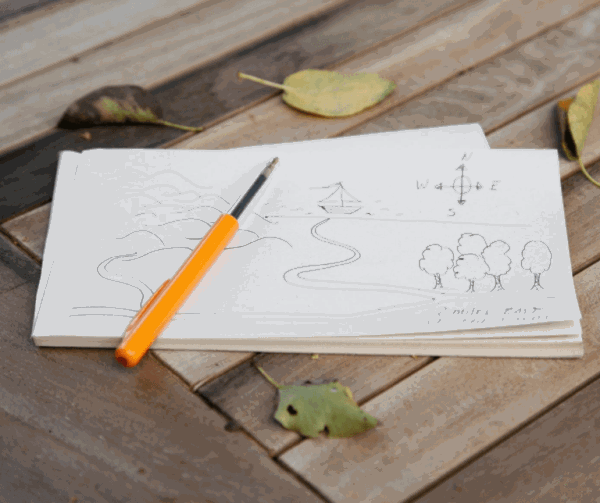 Image via Outdoor Classroom Day
Image via Outdoor Classroom Day
Make a map of your outdoor play areas or a natural space in your local community. Encourage children to draw what they see and use symbols to represent key objects. Add other map features like labels, directions and compass bearings.
Literacy skills can be taught outdoors too! Mapmaking teaches children about spatial awareness and measurement, but also about communication.
Mapmaking relates to outcome five of the Early Years Learning Framework (EYLF): children are effective communicators. Maps help children express ideas and make meaning using a range of media while learning how symbols and pattern systems work.
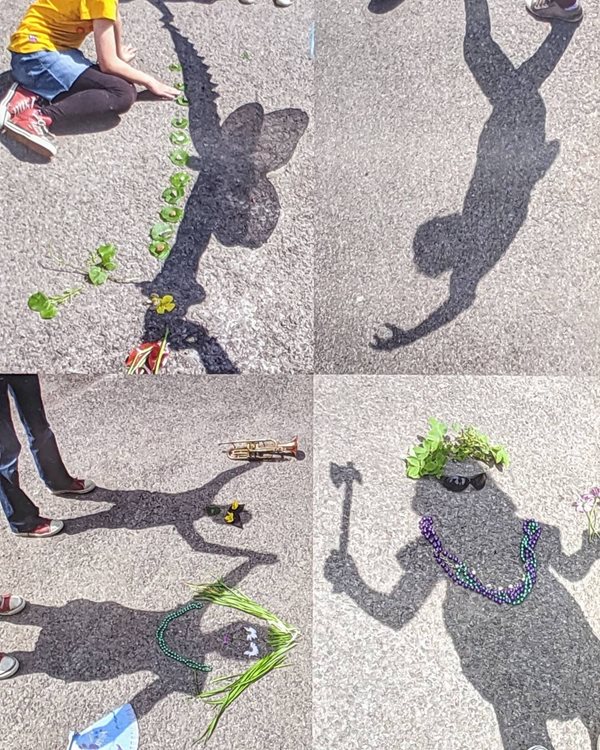 Image via @goingwild1
Image via @goingwild1
Find a sunny outdoor space so children can cast shadows with their bodies. Provide materials so children can decorate the shadows. Use natural items found in the garden, like leaves, sticks and flowers. Traditional dress-up props can be used too, like hats, capes and masks.
Dressing up children’s own shadows connects with EYLF outcome one: children have a strong sense of identity. Children will develop knowledgeable and confident self-identities as they choose what they want their own shadow to look like.
What dress up items will they use?
What personality will their shadow have?
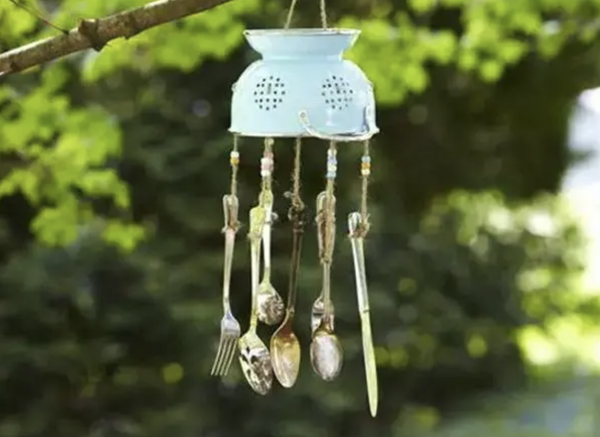 Image via Balcony Garden Web
Image via Balcony Garden Web
Ask families to donate used kitchen utensils for your outdoor area – but don’t put them in the sandpit! Make a garden teapot fountain, cutlery wind chimes, or an artistic bird feeder or birdbath.
Reusing old kitchen utensils helps children become socially responsible and show respect for their environment. This is under EYLF’s outcome two: children are connected with and contribute to their world.
Educators can use this teachable moment to talk about the benefits of waste reduction.
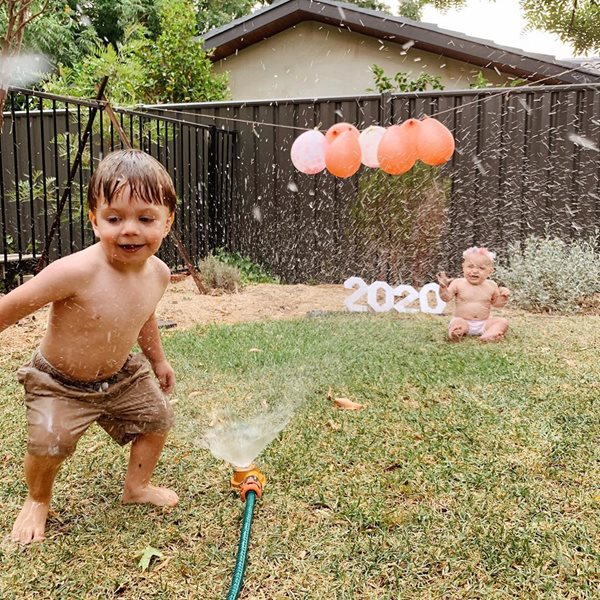 Image via @amumotherthings
Image via @amumotherthings
If the weather is growing warmer and there are no water restrictions in your area, this is the perfect time for sprinkler play. Teach children that water can be fast, dynamic and even a little scary. Children will engage differently with water from a sprinkler than they will with water in a trough or bucket. And let the grass and plants have a good drink too.
Sprinkler play relates to EYLF outcome four: children are confident and involved learners, as children resource their own learning through connecting with natural materials. They will also learn to interact in relation to others with care, empathy and respect, under outcome one.
Sprinkler play is a social activity – when a sprinkler is turned on, everyone will want to join in!
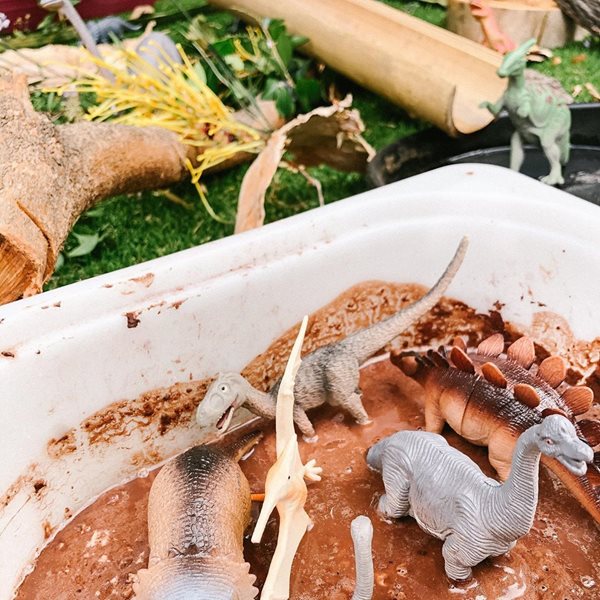 Image via @holisticplayapproach
Image via @holisticplayapproach
The mud in this picture is made from cocoa, however, real mud should definitely be used on Outdoor Classroom Day! Plastic animals and dinosaurs can be added to a mud patch, so children can create their own small, muddy world.
What happens if an animal gets stuck in the mud?
How do they get clean again?
Dinosaurs are often added to indoor sensory tables. Taking them outside and mixing them with natural materials relates to outcome four: children are confident and involved learners. Children transfer and adapt what they have learned from one context to another. They also learn through natural materials – thick oozy, mucky mud!
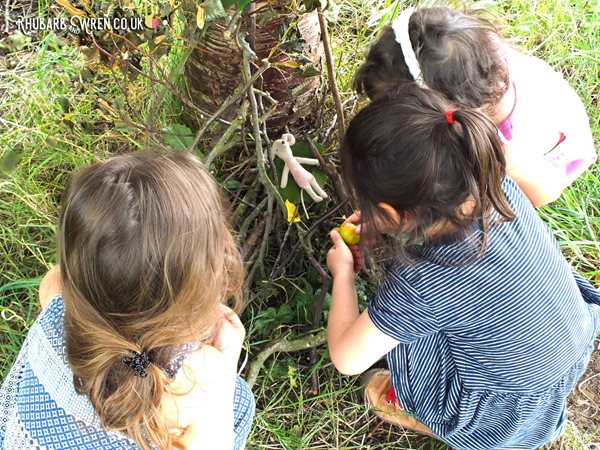 Image via Rhubarb and Wren
Image via Rhubarb and Wren
Making a large, child-sized den for each child isn’t always practical. But children can make mini dens for their favourite toys. Collect sticks and other garden materials, and use string to make teepees and lean-to tents. There are no rules. Each child can design and construct their own amazing shelter.
Making mini dens relates to all areas of EYLF outcome four. Children develop dispositions for learning like curiosity, creativity and imagination, and skills like problem-solving. They learn through new contexts by taking indoor toys outdoors and resource their own learning through natural materials.
Further reading:
Become a CELA Member
CELA provides professional support to navigate the ECEC environment.
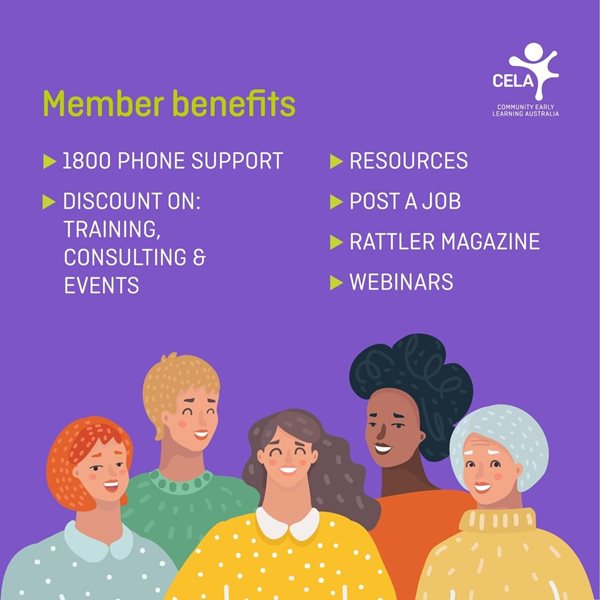
About CELA
Community Early Learning Australia is a not for profit organisation with a focus on amplifying the value of early learning for every child across Australia - representing our members and uniting our sector as a force for quality education and care.